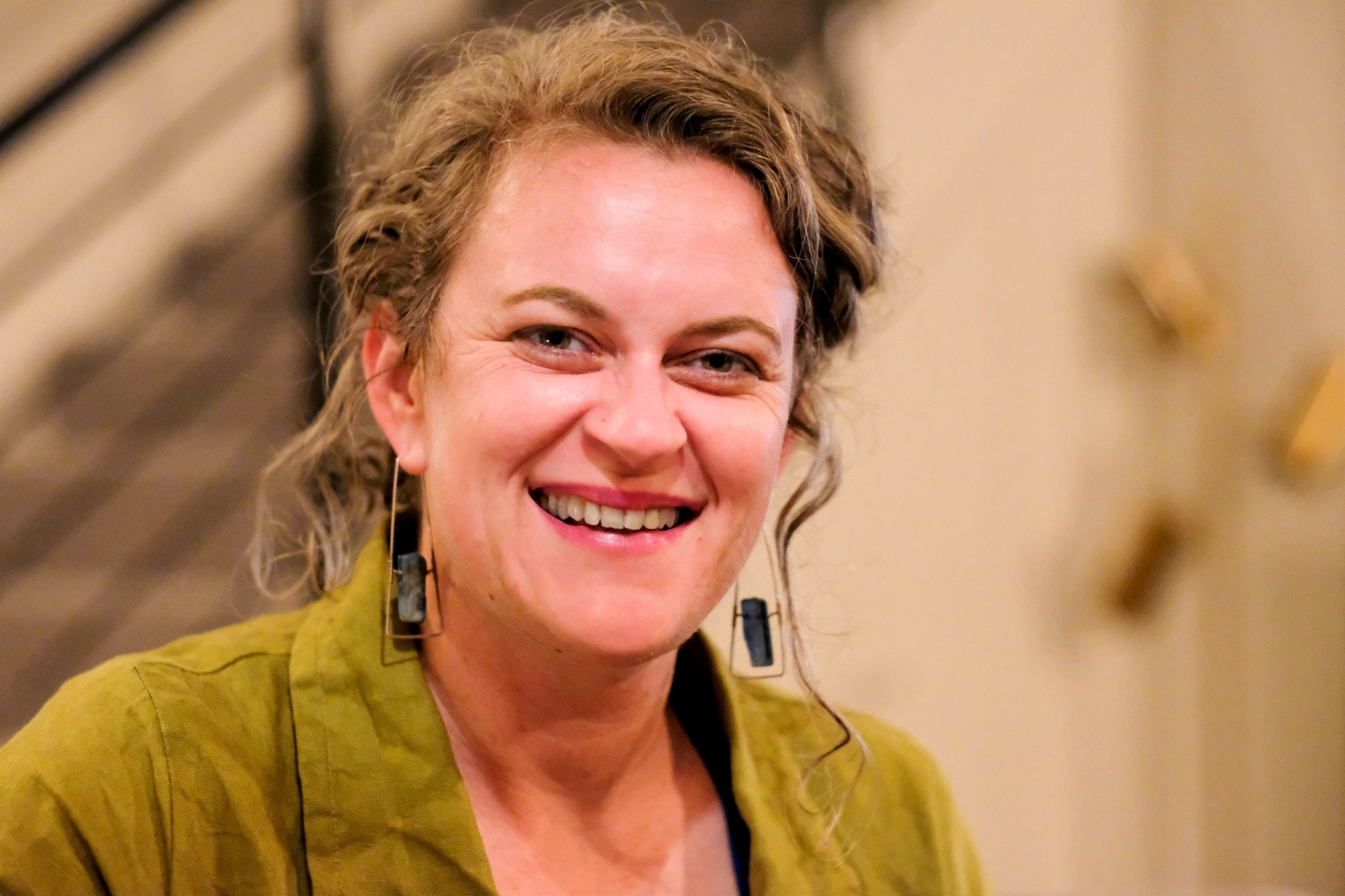Alright – so today we’ve got the honor of introducing you to Emily Fanjoy. We think you’ll enjoy our conversation, we’ve shared it below.
Emily, looking forward to hearing all of your stories today. What was the most important lesson/experience you had in a job that has helped you as a business owner?
Fresh out the Peace Corps doing development work, I returned to the states and got a job at a community non-profit that provided advocacy services to survivors of intimate partner and sexual violence. I went from one intense job to another, but the training I got for advocacy made my brain blow up a little bit. The most important thing, I was told during training, was to never tell someone what to do, because each person is the expert in their own experience—they’re the only one who can know what the right choice is for themselves in a given moment. In the situations we worked through, this was acutely true for the people seeking our services. They knew the manipulative and harmful person better than I did, and therefore they knew best how to keep themselves safe in the context of dealing with that person. This was the first time in my life I’d been told a person is the expert in their own experience. I’d never even considered myself an expert in my own experience—I’d spent all of my just under 30 years of life following cues from external authority figures about what I should do to do things “right”.
It was incredibly challenging to do advocacy work, and yet it was so powerful to watch individuals carve their own path to safety. I could give them a menu of options, and they would take it from there. This was so different from how I was trained in development work, and how I was trained kindergarten through a college degree, to accept hierarchies where present and to exert authority by telling people what to do, no matter how limited my own knowledge was.
This approach was a game changer, and it has informed my career ever since. The idea that everyone is the expert in their own experience is always true. In the coaching and facilitation work I offer, this is basis of the work. I listen deeply. I ask probing questions. I synthesize and reflect information, and I offer tools and activities for individuals and groups to use their own brilliance to solve what is challenging for them on their own. In coaching, I get to support folks through the process of moving from theory to practice in terms of changing beliefs and behaviors to align with who they are now in their lives and what they want to achieve moving forward. In my facilitation, I guide groups and teams in active, collaborative problem solving—whether it’s developing a strategy, determining work culture and integration process, a brand idea or product. The collaboration and collective decision making highlights their brilliance and leaves them with a plan they want to execute. It also usually ends up saving companies time, frustration, and money. With coaching and facilitation, my clients often end up having some fun even as they work through challenging stuff. It is incredible and rewarding work.
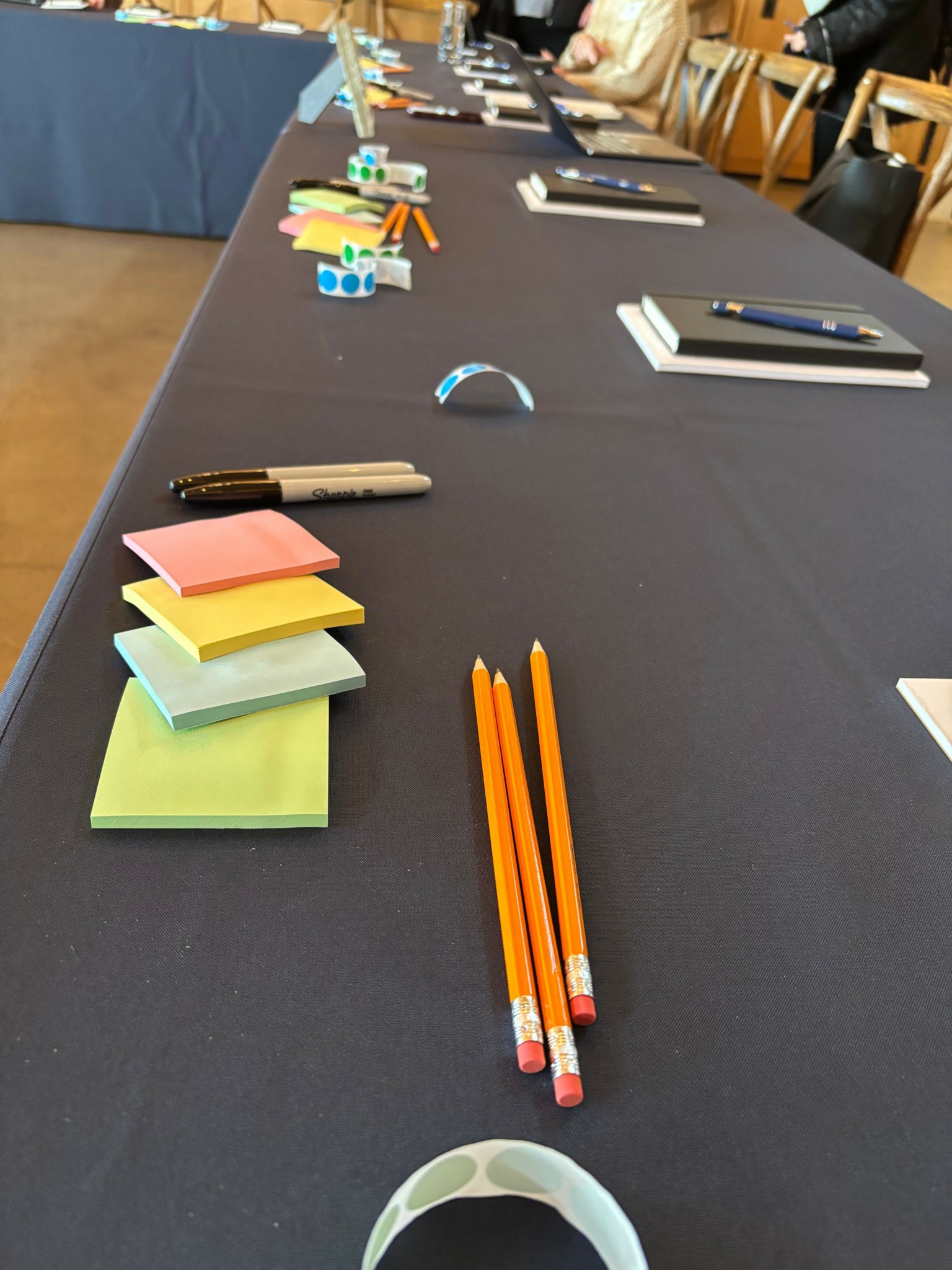
Awesome – so before we get into the rest of our questions, can you briefly introduce yourself to our readers.
Hi! My name Emily Fanjoy and I’m a Coach & Facilitator. I’m based on the beautiful North Oregon Coast where I offer in-person and remote services. I came to coaching and facilitation after more than a decade in community social services work, primarily focused on trauma survivor support and access to and coordination of services. When I needed a career shift, I started by assessing my personal strengths and looking for the common threads to the question, “What have I enjoyed most in my past work?” My career revolves around caring deeply for the people I serve and the work I do—whether I’m doing that as a Peace Corps Volunteer, Project Manager for social services organizations, or as a coach and facilitator.
People frequently ask me, “Are you a Life Coach or a Professional Coach?” I am a whole person coach, and to me this is twofold. 1) If you want to change something in your personal life, how you experience your professional life will change. If you want to make changes in your professional life, it will change how you experience your life outside of work. I work with clients to identify their goal for the duration of our engagement, and we work together for them to achieve it, always taking into consideration, if you do x in your career it could have y impact on your personal life, or vis a vis. 2) I coach clients not just through logic problems, but through challenging internal terrain using somatic tools to connect them to their unique body intelligence. By connecting their minds and bodies, clients walk away with a more complete picture of what is working for them, what isn’t, and what they can do about it that will help them achieve their goals.
Some example of coaching client goals achieved
Say no to low ticket engagements to make space for high ticket, high impact work. Write the outline of my book.
Determine my next career move—to take director level positions or continue as an independent consultant—in order to do more of the work I love.
Build and maintain healthy communication strategies with my hopeful successor to enable us both to do our best work, together.
Return to doing the public service work I love after burnout, this time with healthier skills and strategies to take care of me while doing the work.
As a facilitator, people often ask me, “What does that even mean?” The word ‘facilitate’ means ‘to make easy’. I consult with companies and organizations as a facilitator to make their meetings easier for them. I support groups in carrying out efficient, meaningful work that ends in actionable outcomes. I’ve worked for corporate, government and non-profit clients. Examples of work I’ve done: facilitating a 30 person cross-systems task force for a year to develop local government recommendations; facilitating a company off-site for an emerging design business to identify challenges and develop a multi-year strategy plan; facilitating a two day meeting of 28 stakeholders to develop a place-based brand story for a new hotel guest experience. Deep listening, probing questions, and idea synthesis are my strong suites—keeping the meeting on task and on time. I’ve also facilitated remote and hybrid strategy sessions for clients with interactive software through Zoom and Miro.
As a fellow human on my own personal and professional journey, I’m committed to continually learning and growing in this profession. I’m a coach who hires my own coaches. I’m a perpetual student, and I’m always working to move from theory to practice in life and work. I bring all of this with me.
In my work with you, whether it’s coaching or facilitation, I want you to own your brilliance, and to celebrate it. I bring a deep commitment to balancing challenge with enthusiasm. I will ask provocative questions, guide you through sometimes strange or uncomfortable or funny exercises to explore edges, and I will cheer you on all the way to your win.
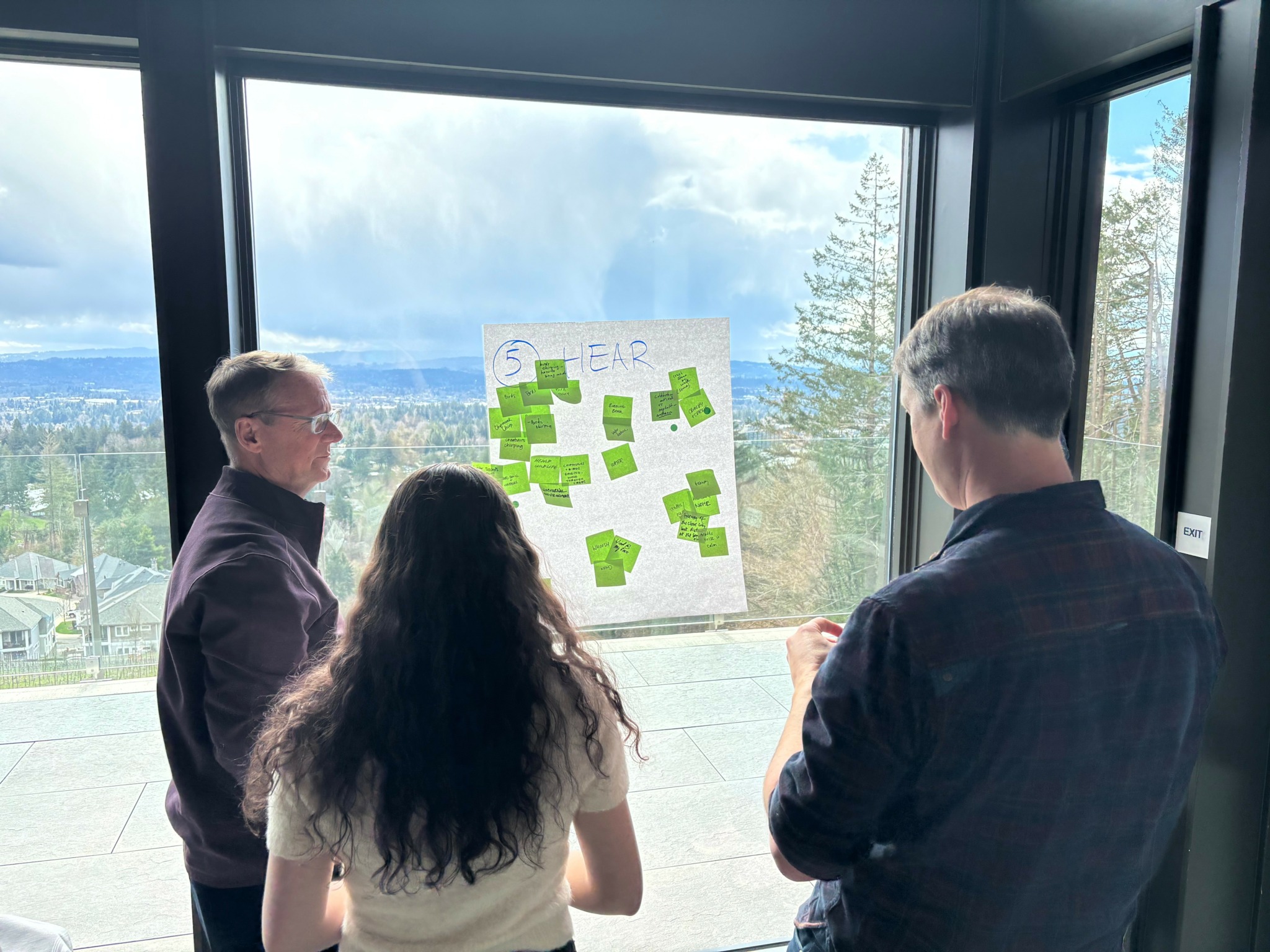
What’s a lesson you had to unlearn and what’s the backstory?
A lesson I’ve had to unlearn is, “I must take care of others.” I grew up in a big, Catholic family. My 7 siblings and I were taught to care deeply for each other and for our community. Service has been a constant part of my life, from the Girl Scouts to Peace Corps to community health and trauma survivor advocacy. The problem was that I learned through many, many examples that the way to take care of others was by ignoring and/or minimizing myself and my needs. In retrospect, it seems really obvious that being taught to revere martyrs, to emulate a lot of their behaviors, cut a twisting turning path to burnout. I guess given martyr example, burnout was the easy way out. All kidding aside, it was an excellent, if at times excruciating, teacher. I must take are of myself. Being selfish isn’t negligent, it’s imperative. Howard Thurman has a take on this idea that I return to often, “Don’t ask what the world needs. Ask what makes you come alive, and go do that. Because what the world needs is people who have come alive.” I’m always working on moving more and more into my own aliveness, and it led me to this work where I witness other people coming alive. The ripple effect is so obvious and explicit..
I know now that I don’t have to take care of others like I was taught. In fact, they’re very capable of taking care themselves when given the support to do so.
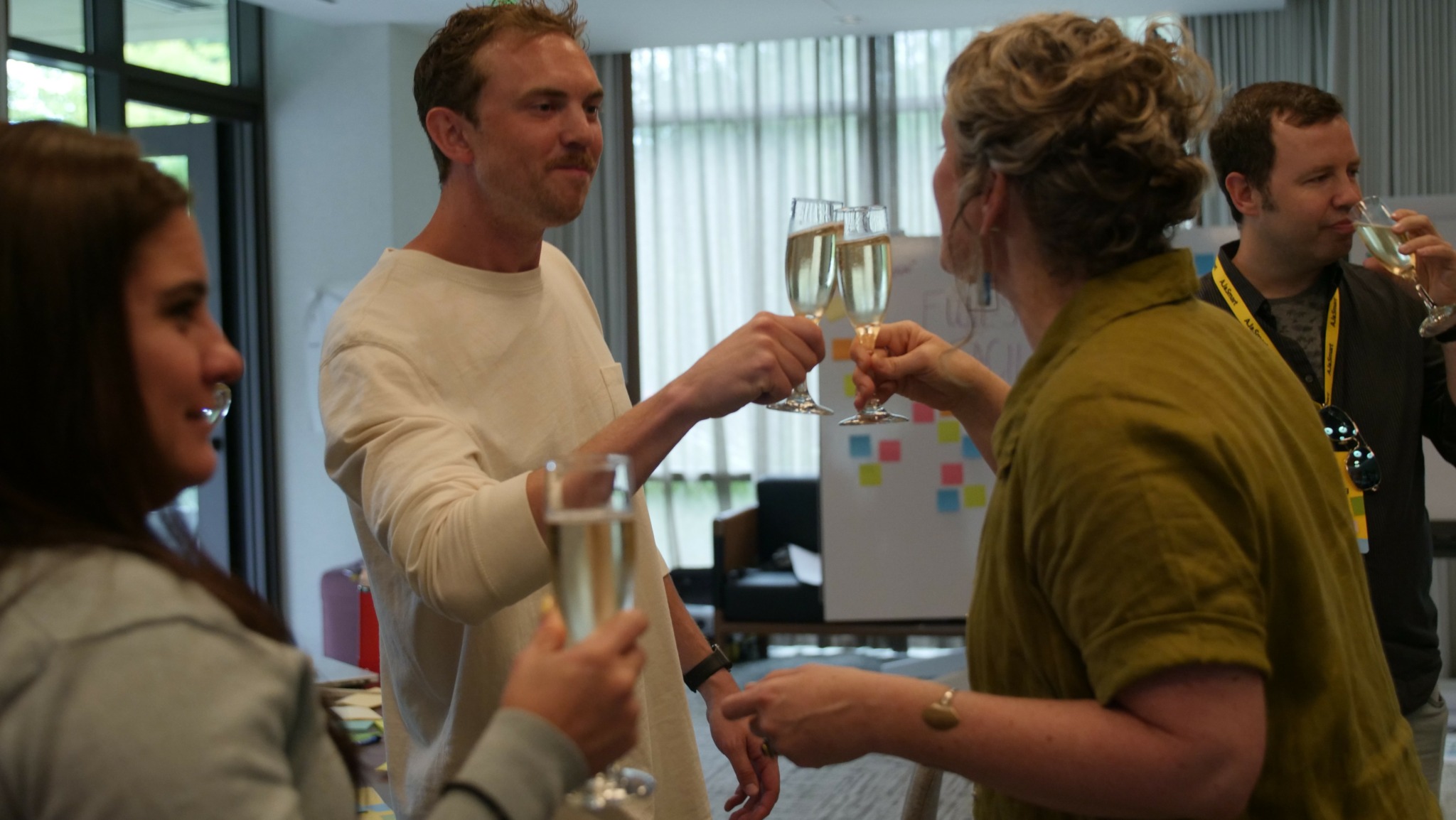
Have any books or other resources had a big impact on you?
I’m a nerdy fan-girl of the idea of taking personal responsibility. It’s super challenging work, and it informs everything I do. I love the video resources from The Conscious Leadership Group (https://conscious.is/resources) , and their book, Conscious Leadership. I’m also blown away by the work of Byron Katie and her book, Loving What Is.
Contact Info:
- Website: https://emilyfanjoy.com
- Linkedin: https://www.linkedin.com/in/emily-fanjoy-9358301b9/
- Other: connect with me at [email protected]
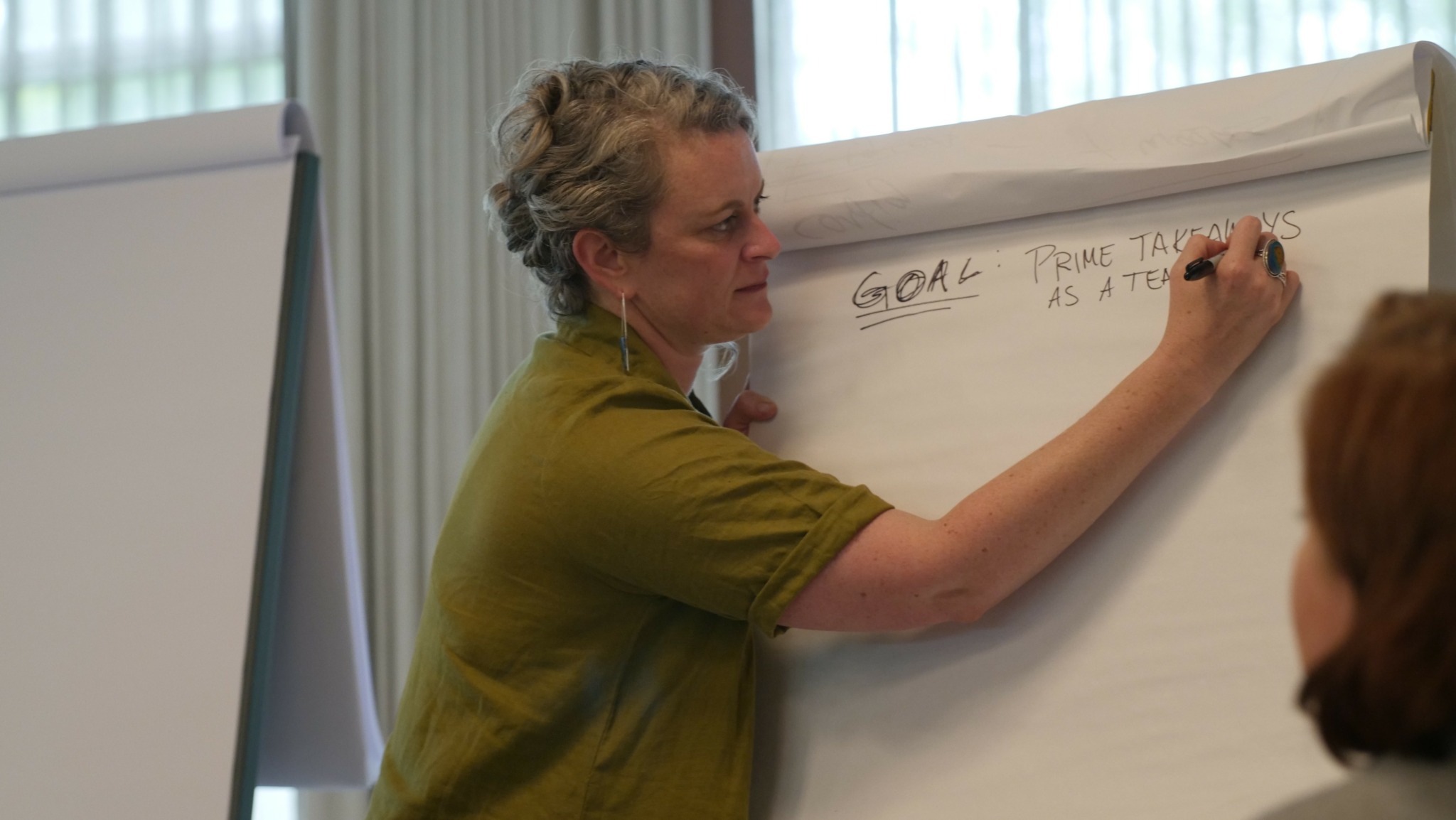
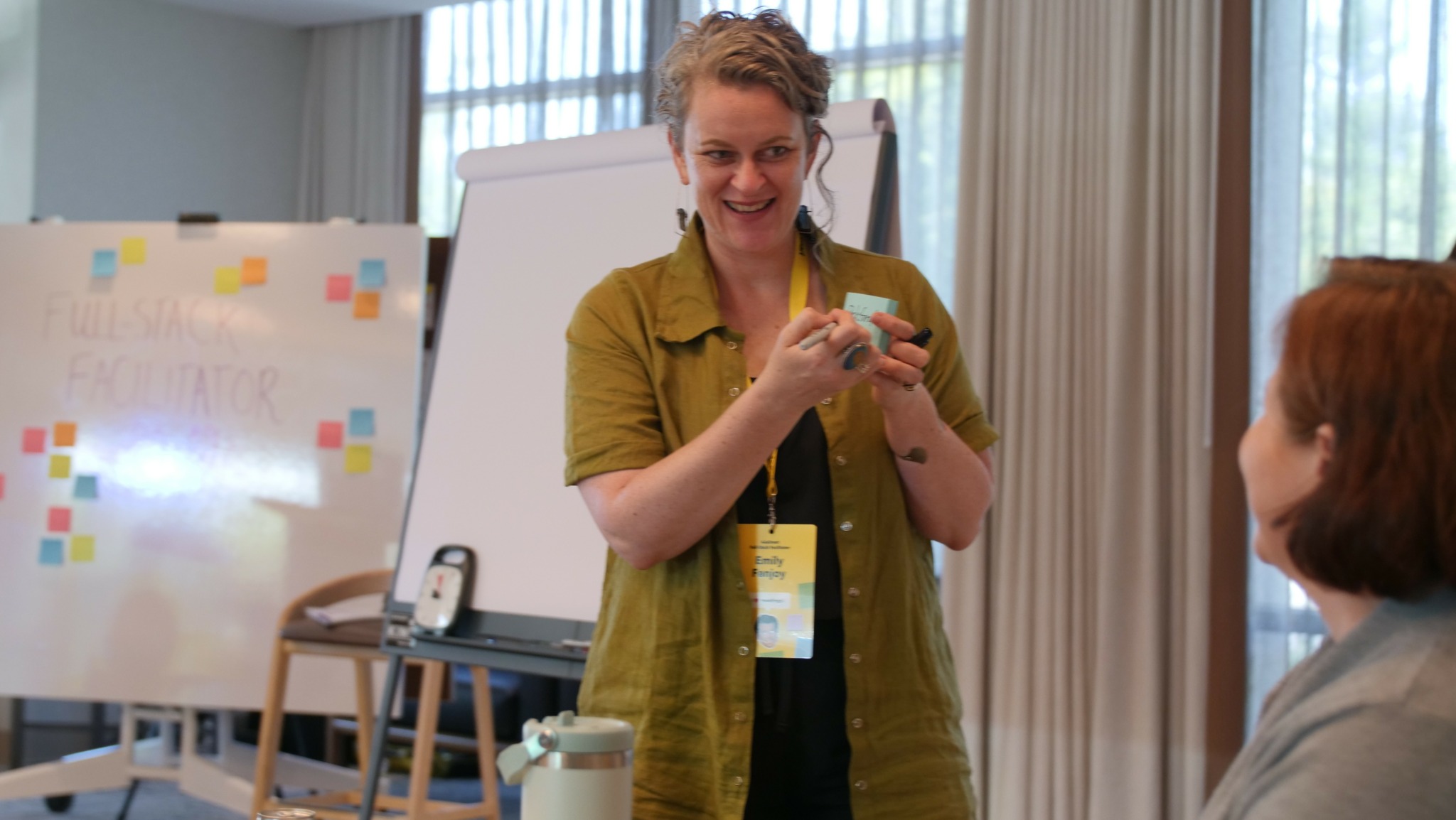
Image Credits
Makiko Nagakura, headshot
Juan Sebastian Elinon Aragon, facilitation shots


